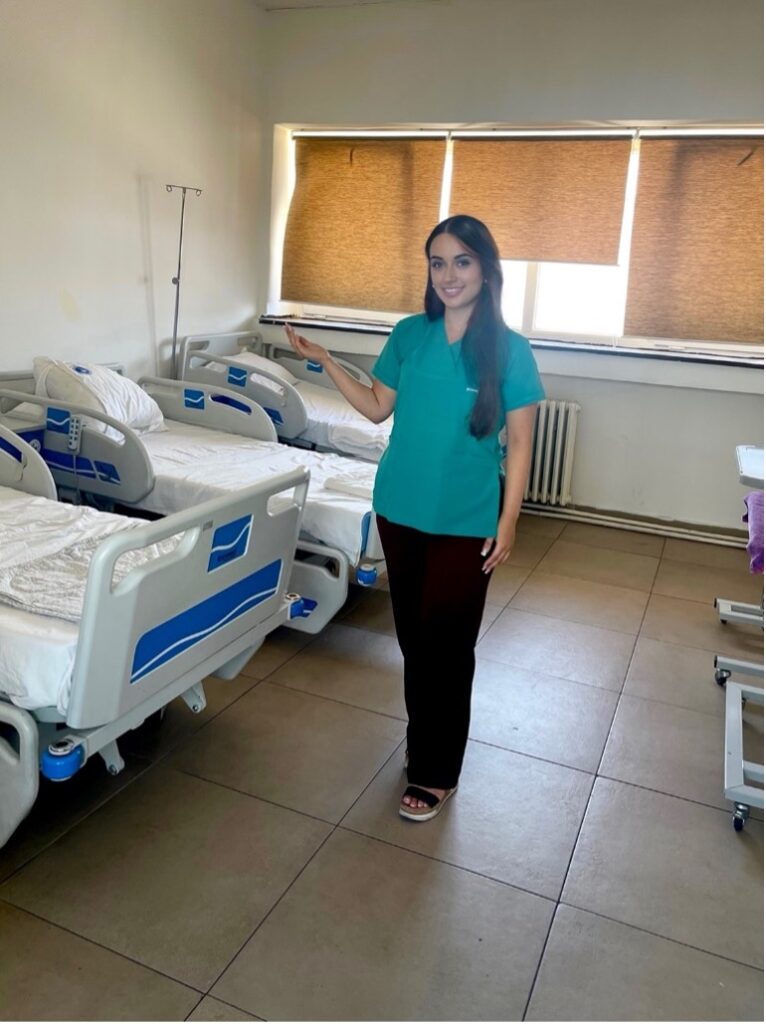Piedmont Nursing Student Recounts Visit to Kosovo Hospital
Last summer, Piedmont University senior nursing student Artizana Hasaj visited her parents’ home country of Kosovo. Artizana observed her cousin, Suzanna, a psychiatric nurse in the Neuro-Psychiatric Unit at the Hospital of Prishtina.
“I thought this was a great way to introduce myself to the world of mental health and prepare myself for what I would learn at Piedmont,” Artizana said.
She described how operations at the Prishtina facility differ from similar institutions in the U.S.
“The rooms are small. There is no air conditioning — only windows, and multi-occupancy rooms were common, with up to three patients in one room,” Artizana said. “This was interesting to me, as in America, each patient has their own room.”
Private hospitals in the area funded by foreign countries have computers, but the Hospital of Prishtina is a state hospital that receives meager support from the government. Nurses document everything by hand in a “single thick blue book” that holds records for all the patients in the unit.
Artizana met the director of the psychiatric hospital, Perparim Berisha, who told her war is to blame for the condition of Kosovo’s healthcare system.
“After the war in 1999, the healthcare system was weak, and there was no investment,” Arizona said. “This has left the patient population at a disadvantage as the poor health and medical facilities cause patients to go to neighboring countries to seek healthcare.”
Another difference: Depending on where they are in their healthcare journey, patients are allowed and encouraged to spend weekends with their families.
“It is highly emphasized that psychiatric patients spend time with their families to allow for bonding and for them to have a little break from the hospital,” Artizana said. “When the patients come back, the nurses would then ask family members for feedback pertaining to the patient’s condition and if there were any changes or improvements.”
Artizana also wrote about the range of patients and their conditions, which ranged from “delusions and hallucinations” to drug addicts. She also witnessed a nurse administer to a chronic opioid user the medication Naloxone, more commonly known as Narcan.
“This was a full circle moment, as in pathophysiology and pharmacology [classes], we learned how to use naloxone to reverse opioid overdose,” Artizana said.
“Overall, my experience at the psychiatric unit in Prishtina was great. Not only was I able to witness patient-nurse interactions, but I was also able to learn more about how the healthcare system in Kosovo differs from what we have in the state of Georgia. It expanded my knowledge in government and healthcare system relations.”
To learn more about the programs offered by the R.H. Daniel College of Nursing and Health Sciences at Piedmont University, please visit piedmont.edu/academics/nursing-health-sciences/.
